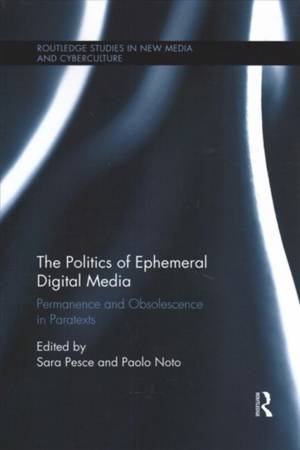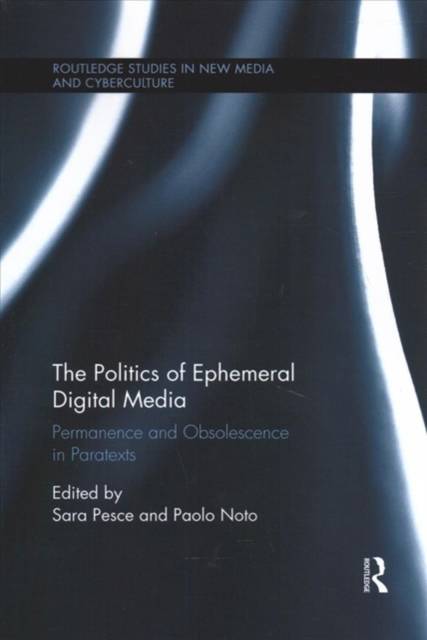
- Retrait gratuit dans votre magasin Club
- 7.000.000 titres dans notre catalogue
- Payer en toute sécurité
- Toujours un magasin près de chez vous
- Retrait gratuit dans votre magasin Club
- 7.000.0000 titres dans notre catalogue
- Payer en toute sécurité
- Toujours un magasin près de chez vous
The Politics of Ephemeral Digital Media
Permanence and Obsolescence in Paratexts
Description
In the age of "complex Tv", of social networking and massive consumption of transmedia narratives, a myriad short-lived phenomena surround films and TV programs raising questions about the endurance of a fictional world and other mediatized discourse over a long arc of time. The life of media products can change direction depending on the variability of paratextual materials and activities such as online commentaries and forums, promos and trailers, disposable merchandise and gadgets, grassroots video production, archives, and gaming. This book examines the tension between permanence and obsolescence in the production and experience of media byproducts analysing the affections and meanings they convey and uncovering the machineries of their persistence or disposal. Paratexts, which have long been considered only ancillary to a central text, interfere instead with textual politics by influencing the viewers' fidelity (or infidelity) to a product and affecting a fictional world's "life expectancy". Scholars in the fields of film studies, media studies, memory and cultural studies are here called to observe these byproducts' temporalities (their short form and/or long temporal extention, their nostalgic politics or future projections) and assess their increasing influence on our use of the past and present, on our temporal experience, and, consequently, on our social and political self-positioning through the media.
Spécifications
Parties prenantes
- Editeur:
Contenu
- Nombre de pages :
- 254
- Langue:
- Anglais
- Collection :
Caractéristiques
- EAN:
- 9781138319745
- Date de parution :
- 28-06-18
- Format:
- Livre broché
- Format numérique:
- Trade paperback (VS)
- Dimensions :
- 152 mm x 229 mm
- Poids :
- 489 g

Les avis
Nous publions uniquement les avis qui respectent les conditions requises. Consultez nos conditions pour les avis.





